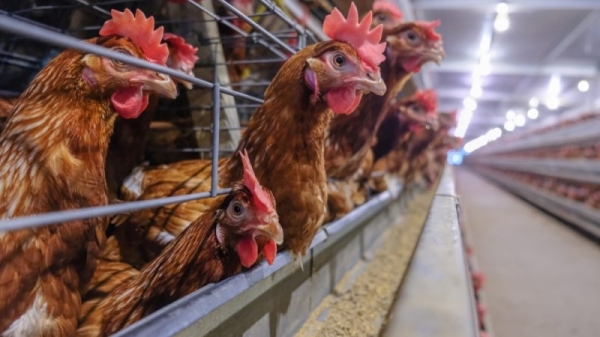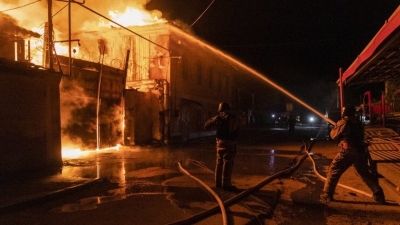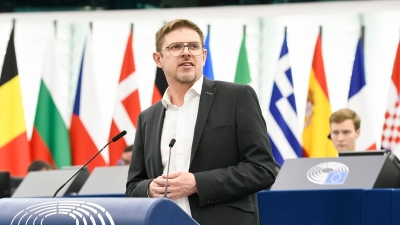Political herds see animal welfare votes in Europe’s elections

Europe’s 340 million pets are unlikely to swing this year’s European elections, though with cats, one can never be sure. Jennifer Baker looks at Europe’s animal-related policy dynamics and how they could influence June’s electoral mix.
2024 is a bumper year for elections around the globe. In Europe, the cost of living, energy, environment, and migration are among the top concerns of voters at a national level. With the European Parliament, voting intentions can be a little different, allowing for broader areas of concern where local party-political questions tend to be less dominant. This means issues such as animal welfare can come to the fore.
According to the European Pet Food Industry Federation (FEDIAF), European households boasted 340 million pets in 2022 – including 127 million cats and 104 million dogs – across more than 90 million homes, so it would seem we are a continent of animal lovers, and yet animal welfare is not an issue that is routinely seen as a vote winner in national politics.
Dr Joanna Swabe, senior director of public affairs for Humane Society International/Europe, explained: “Animal welfare is one of those rare issues that is neither left nor right. Across the political spectrum and irrespective of nationality, you’ll always find politicians who care about the plight of animals. It is certainly not the exclusive domain of the Greens and the Left.”
Swade remarked that over the years she’s even encountered very conservative right-wing MEPs for whom animal welfare is paramount.
In the European Parliament, the Intergroup on the Welfare and Conservation of Animals brings together more than 90 MEPs to work together to advance animal welfare and conservation in EU policy making.
Recent issues under discussion include a proposal for a regulation on the welfare of dogs and cats and their traceability, protection of wolves in the EU, the use of animals in science and a new proposal for a regulation on the protection of animals during transport.
The intergroup also advocates for Cage-Free Farming and a Fur-Free Europe, while highlighting the importance of Animal Welfare Labelling.
Catalysts for change
“MEPs can serve as catalysts to push for better animal welfare legislation,” explained Danish S&D MEP, Niels Fuglsang.
Fuglsang is one of many European Parliament candidates in the upcoming elections to have signed the Eurogroup for Animals’ “Vote for Animals” pledge: a commitment to push the European Commission to put forward ambitious legislation in areas critical to animal welfare.
Some of the legislative proposals are obvious, such as fur labelling in the revision of EU textiles Regulation. Others are more indirect. For example, the European Green Deal sets out the ambition to reach zero pollution for a toxic-free environment. The so-called REACH revision could be an opportunity to promote non-animal testing.
Landmark opportunity
And it’s not only animals’ rights groups that support better legal protection for our furry friends. Cefic, the voice of the chemical industry in Europe, described the REACH revision as a “landmark opportunity to accelerate development, validation and regulatory acceptance of human-relevant, animal-free approaches to assess safety of chemicals.”
“By making every effort to identify where animal-based testing can reliably be replaced by non-animal methodologies and reflect latest advances in science, we will create a triple win for the industry, regulators, and animal welfare. This requires a paradigm shift in safety assessment towards Next Generation safety assessment, similar to moves seen in the area of cosmetics or pharmaceuticals,” said the organisation.
The EU Pharmaceutical Package currently under co-decision could also encourage new technologies to reduce testing on live animals.
One national outlier where animal – specifically bird – welfare and safety is a hot button issue is Malta. During the last European elections in 2019, Malta’s powerful pro-hunting lobby, FKNK, urged its supporters not to abstain, but to vote for its preferred candidates.
Cannot ignore agriculture
In Malta it is the hunting lobby that pressures political parties. Elsewhere in Europe the influential farming lobby holds sway. The protests of recent weeks have shown candidates that they cannot afford to ignore the rural, agricultural vote.
The Humane Society International/Europe’s manifesto, which aims to encourage policymakers to take a more ethical stance on animal welfare, has farm animals top of its agenda.
Swabe pointed out that many politicians are happy to loudly trumpet their support for legislative action to end the illegal puppy trade but are conspicuously quiet when it comes to pigs and poultry kept on Europe’s farms.
“We are told the Commission is currently assessing whether the transition to cage-free farming is sustainable for the agricultural sector and that further consultations on, amongst other things, the costs and length of transition periods are needed,” said Swabe.
She added that for the millions of laying hens still confined to enriched battery cages, and millions of pigs who continue to languish in individual sow stalls for a significant proportion of their gestation, “ […] what is truly unsustainable is this failure to take decisive action to provide them with housing systems that meet their welfare needs.”
[By Jennifer Baker I Edited by Brian Maguire | Euractiv’s Advocacy Lab ]
Read more with Euractiv




